16, November 2023
Archbishop Nkea on Why Synod on Synodality in Rome was Special 0
The October 4-29 XVI Ordinary General Assembly of the Synod of Bishops was a “special” moment for the Universal Church, Archbishop Andrew Fuanya Nkea of Bamenda Archdiocese in Cameroon who participated in the Rome meeting has said.
Speaking at a Wednesday, November 15 webinar which the African Synodality Initiative (ASI), a partnership between the Jesuits Conference of Africa and Madagascar (JCAM), the Symposium of the Episcopal Conferences of Africa and Madagascar (SECAM), and the Association of Member Episcopal Conferences in Eastern Africa (AMECEA) initiated to share experiences and lessons of African delegates, Archbishop Nkea said the synod “was indeed a moment of grace.”
“Everyone who was in that meeting experienced something very special. The way we conversed with one another, the light-hearted way in which we took things, the way we were able to interact with each other, the moments of the celebration of the Eucharist, and the moments of sharing with one another. That was a very special grace for the Church,” the Cameroonian Catholic Archbishop who was a member of the Ordinary Council of the synod said.
He said the Synod was also very special because of the participation of many countries including China.
The Archbishop of Bamenda who also serves as the President of the National Episcopal Conference of Cameroon (NECC) further said the Rome meeting was special because “it was a very deep moment of communion.”
“We experienced very deep communion with one another. We were able to share and all who participated in the synod were able to interact with Pope Francis like friends,” the Catholic Archbishop who started his Episcopal Ministry in Cameroon’s Mamfe Diocese as Coadjutor Bishop in August 2013 said.
According to Archbishop Nkea, the Synod special because it was a “big and great moment of sharing.”
“We shared freely, we shared without reserve, we shared without being afraid of any subject and everyone was able to interact in this process,” he said, and continued, “We were able to talk to each other freely, bring up our own ideas and this aspect of sharing is a very strong element of synodality.”
He recounted, “It is the first synod to take place out of the synodal hall. There were 37 tables with each table having at least 12 delegates. Being out of the synodal hall and sitting on these round tables, we each had the feeling of being a family.”
“We all felt very close and intimate sitting round these tables and talking to one another,” Archbishop Nkea said during the November 15 webinar.
The introduction of the element of Spiritual conversations also made the Synod on Synodality very special.
“During this synodal assembly, after every four speakers, we bowed our heads, closed our eyes for four minutes reflecting on what has been said and reflecting on what we would say ourselves,” Archbishop Nkea recounted.
He continued, “This was a very special moment where the Spirit spoke to each one of us in our hearts. We understood from this conversation in the Spirit that it was not our arguments that we are advancing. We were not in the synod to defend ideologies. We were not in the synod to promote personal agendas.”
“When we put down our heads, there was only one focus: the Spirit of God is the only protagonist of the synod,” the Archbishop of Bamenda said.
The fact that lay people were invited to participate in the Synod also made it special.
“It was a very special moment for the Church that we could sit together with our lay brethren and together express how we felt,” Archbishop Nkea said.
Source: aciafrica
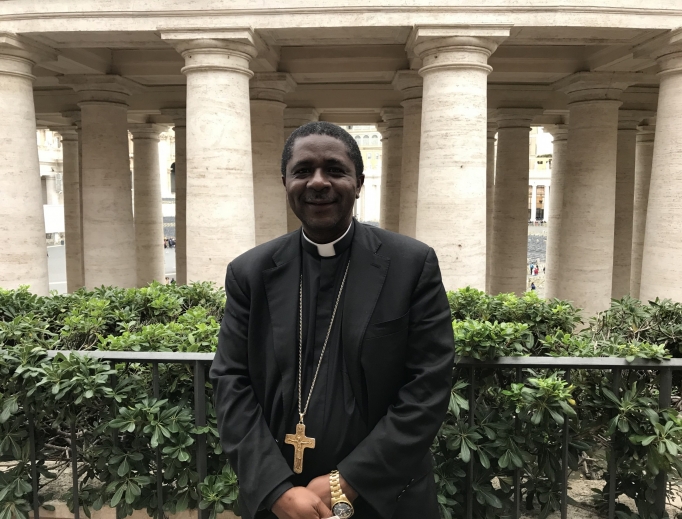

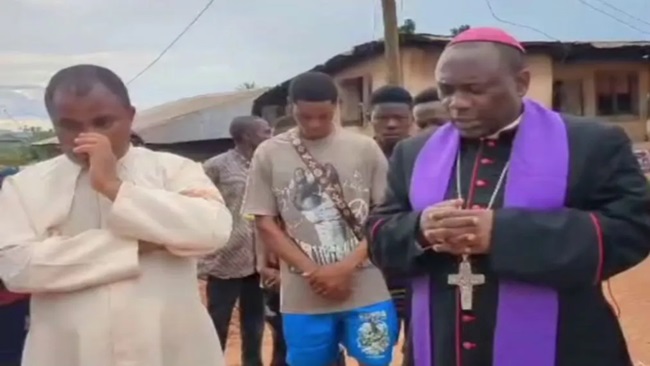
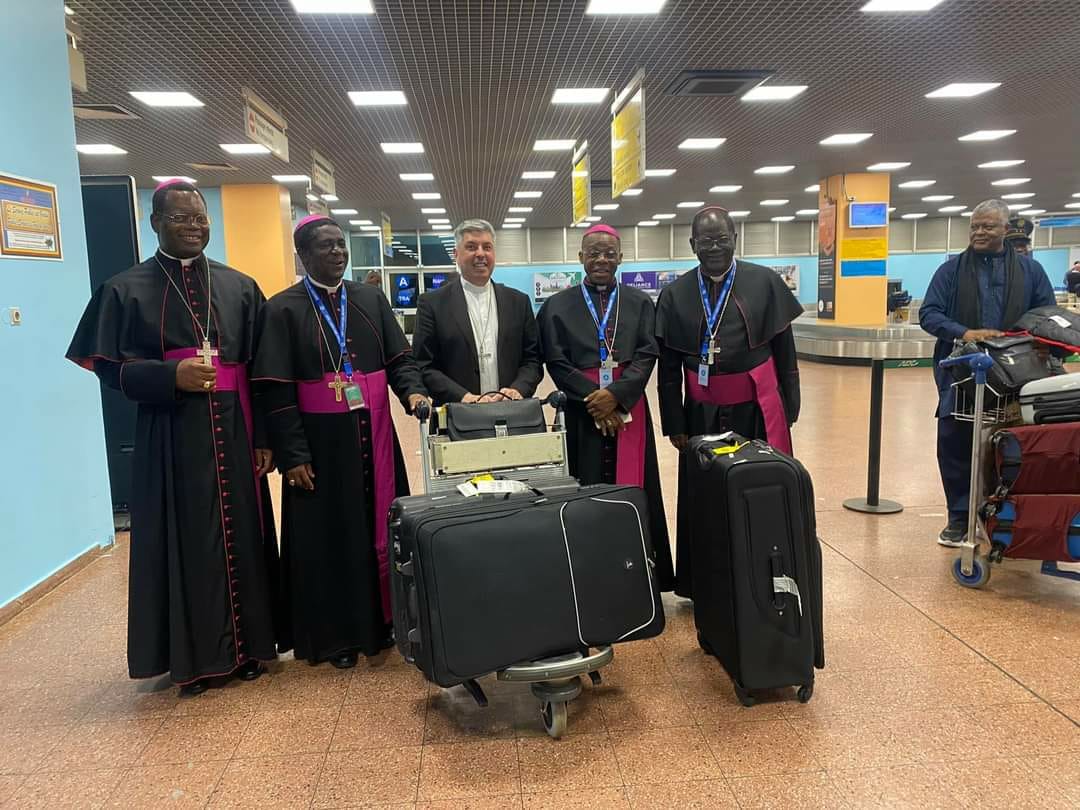
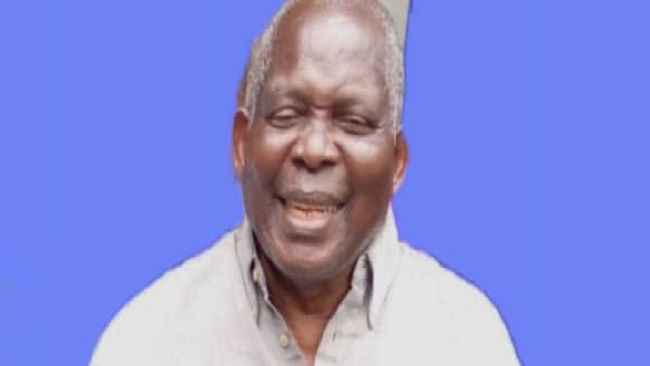
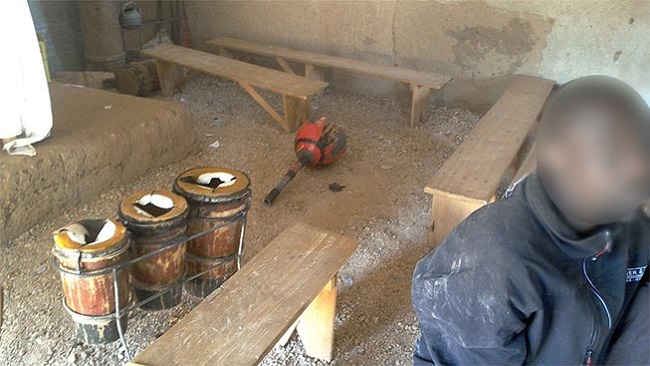
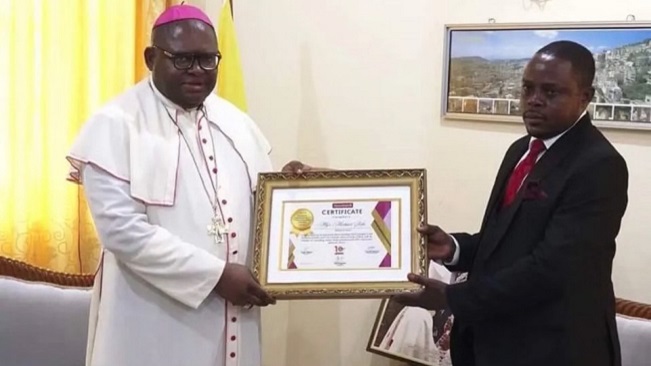











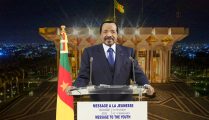






18, November 2023
Pope Francis Meets Cameroonian Migrant Who Survived Tunisia-Libya Desert 0
Pope Francis has me with a Cameroonian mgriant who lost his wife and daughter in the desert between Libya and Tunisia last July.
On Friday, November 17, the Holy See Press Office reported that Pope Francis met with Mbengue Nyimbilo Crepin (known as Pato), accompanied by Fr. Mattia Ferrari, who serves as chaplain to Mediterranea Saving Humans, also assisting them in many rescue missions.
With them were a number of migrants and collaborators of associations and entities involved in the reception and integration of refugees, who in various ways helped facilitate Pato’s arrival in Italy, as well as Cardinal Michael Czerny, Prefect of the Dicastery for Promoting Integral Human Development.
Pato lost his wife, Matyla and six-year-old daughter, Marie in July this year after being stopped and returned to the desert between Libya and Tunisia by Tunisian authorities.
Amid emotion over his story, Pope Francis listened to words of gratitude for the meeting and painful accounts of the thousands of people who suffer as they attempt to reach Europe.
David, from South Sudan, working alongside prisoners in detention camps in North Africa, thanked the Pope for his encouragement and interventions on behalf of migrants.
He said, “You not only offer us a dream, you welcome us.”
In greeting them, after listening to their words, Pope Francis turned to Pato, with a thought for his wife and daughter, “I have prayed so much for them.”
He thanked them all for their commitment, while recalling that being born in places where one can study and work is a privilege.
“Privilege is a debt,” he said, and added, “what you do is not a plus, it is a duty.”
Finally, before saying goodbye, Pope Francis prayed for those present, asking the Lord to watch over those who “work for others,” the people who could not come, those in detention camps, and “the many, many who suffer.”
Source: aciafrica